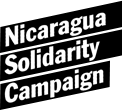New minimum wage agreement reached in Nicaragua
NSCAG News |
on: Thursday, 9 March 2017

Collective Agreements
Under Nicaragua's Tripartite Alliance model, trade unions have achieved an agreement which boosts the minimum wage by an average of 8.25%. The Tripartite Alliance model functions as a direct negotiation between the private sector and the unions, moderated by the government. Since Daniel Ortega returned to the presidency in 2007 and implemented this system, Nicaragua has enjoyed an extended period of labour stability.
In February, Paulo Speller, secretary general of the Organization of Ibero-American States (OEI), said during a visit to Nicaragua, “Nicaragua is a country that has inspired us because it has a different situation compared to the rest of the region. The economy is growing, the people live in peace, and the government is implementing carefully developed policies. The Nicaragua Tripartite Alliance model between government, employers, and labour is a unique and successful model in the region.” Luis Barbosa, secretary general of the Sandinista Workers Central – Jose Benito Escobar, said, “We have achieved something great” and Labour Minister Alba Luz Torres called it “a major victory for Nicaragua’s workers.” Employers, represented by the Superior Council for Private Enterprise (COSEP) are also happy with the deal and have repeatedly credited the model for calming foreign investor fears and promoting investment and job growth.
Nicaragua has several minimum wages for various sectors of the economy. The one covered by this agreement is the one covering Nicaragua’s lowest paid workers in agriculture and garment factories. The agreement covers workers in the rapidly growing tobacco industry, as well as coffee workers, Nicaragua’s largest single employment sector. For the first time unskilled workers will earn US$195.60 per month. That doesn’t sound like much, admittedly. Honduras and Costa Rica have minimum wages of US$353 and US$516 respectively, but a one-to-one dollar comparison leaves out the fact that Nicaraguan workers have free health care, free education, subsidized food and housing for low wage workers, all of which increases the buying power of the Nicaraguan Cordoba. Nicaragua is nowhere near full employment; barely a third of workers are considered formally employed and paying into social security. But that is a significant increase over historical norms and few would argue that workers are not better off than they were under the neoliberal governments of 1990-2006. The fundamentals of the world economy have not changed. Neoliberal capitalism is still making the rules. But in Nicaragua the nature of the State and what economic actors are defended by the State has changed, and that has made all the difference.
Source: Alliance for Global Justice, NICA Notes
http://afgj.org/





